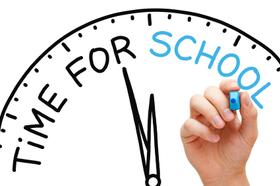Did you know that student dropout rates are still continuing to rise in some of the United States' most populated areas? According to Fox News, America's Promise Alliance reveals that in many urban areas, approximately half of public school students do not earn their high school diplomas. This report further found that 17 of the nation's 50 largest cities have graduation rates below 50 percent. Among the lowest cities are Detroit, Indianapolis, and Cleveland. In examining this crisis on a larger spectrum, only 70 percent of the United States' high school students graduate on schedule each year, and 1.2 million students opt to drop out of school each year. Although the current dropout epidemic is bleak, some school leaders have fortunately found programs to help transform their negative graduation rates.
This video reports on America's dropout epidemic.
Solving the Country's Educational Crisis
In response to the grim dropout statistics, the United States former Secretary of State Colin Powell stated “When more than 1 million students a year drop out of high school, it's more than a problem, it's a catastrophe.” Powell's wife, Alma Powell, further elaborated on the importance of high school education – arguing that public schools prepare individuals for higher education, new challenges, and issues that extend far beyond a classroom.
To address the many problems associated with this crisis, Colin and Alma Powell have created the Chair



















